LATEST INSIGHTS
Your Present Location: LATEST INSIGHTS-
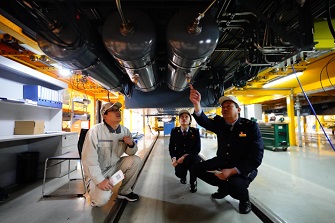
Business environment optimized to spur vitality of market entities
For those who have experienced the hardship of waiting in line at hospitals, the advent of online diagnosis is a boon. "Send your request, and you'll get answered in 10 minutes with more than 230,000 doctors ready to respond." This is what an Internet medical service platform promises its users. The novel coronavirus disease (COVID-19) hindered normal operation in a majority of hospitals, making contactless diagnosis and treatment preferred by many patients, which increased the market expectations on Internet healthcare.
2020-08-10 -
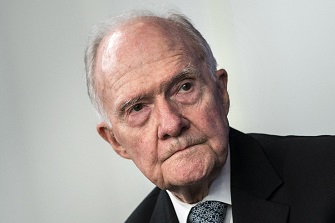
Best way to honor General Scowcroft is to put China-US relationship back on right track: Embassy
The best way to honor General Scocroft is for both sides to work together to put China-US relations back on the right track despite current disturbances and difficulties, the Chinese Embassy in the US said on Saturday following the passing of General Brent Scowcroft, former US National Security Adviser to the President and old friend of the Chinese people, who made a great contribution to promote bilateral cooperation in difficult times.
2020-08-09 -
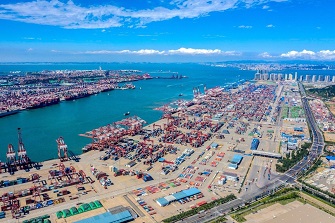
China to form new development pattern centered on 'internal circulation'
China will form a new development pattern centered on "internal circulation," and speed up a "dual circulation" growth model in which "internal circulation" and "international circulation" promote each other, said the Political Bureau of the Communist Party of China (CPC) Central Committee during a meeting convened on July 30. The meeting studied the current economic situation and made arrangements for the economic work for the second half of the year.
2020-08-08 -
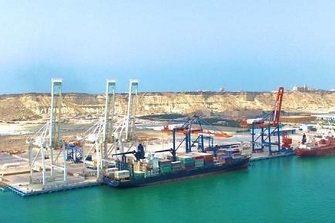
China-Pakistan Economic Corridor faces new threats from militancy
Since the multibillion dollar China-Pakistan Economic Corridor was launched in 2013, there has been cynical scrutiny of the project, arguably more so than other China-backed overseas investments. The United States has led in the criticism, cautioning that CPEC projects are neither transparent nor cost-efficient, and warning Islamabad that it is subjecting itself to expensive loans under China’s Belt and Road Initiative – through which Beijing has pledged more than US$60 billion so far.
2020-08-08 -
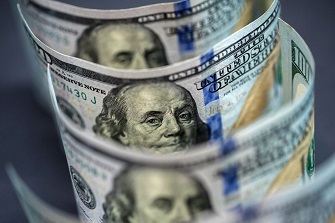
A weakening dollar ripples across global asset
The dollar index remained flat this week since dipping below 93.00 to more than a two-year low last week. The index which measures the dollar against six peer currencies lost nearly nine percent since its peak in March, this is enough to rattle investors in the fairly steady forex market. Investors have subsequently rushed to gold, supporting its price above the 2,000 U.S. dollars threshold for the first time in history. The value of the safe-haven metal has soared 34 percent this year.
2020-08-08 -
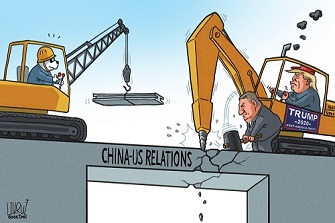
Subtle change, consistent stance in FM Wang’s message to US
As the US is trapped in political turmoil and its diplomacy seemingly has entered an anarchic state manifested by its wanton and crazy assaults against China, Chinese State Councilor and Foreign Minister Wang Yi vowed to cool off tensions and set out a clear framework for bilateral relations, showing that China will always maintain rational and strategic willpower in discourse while preparing for any bumps in the road ahead. "Avoid confrontation, keep the channels open for candid dialogue, reject decoupling and stand up to shared responsibilities," Wang said in an interview with the Xinhua News Agency on Wednesday, drawing a clear-cut framework needed for the China-US relationship.
2020-08-07 -
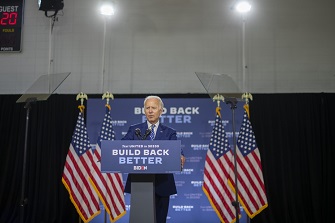
Biden attacks trade deal ‘for election’
US Democratic presidential candidate Joe Biden criticized the phase one trade deal signed by the Trump administration with China, in a move Chinese analysts said tries to attack the most important, and probably the only major diplomatic achievement of US President Donald Trump. Experts warned on Thursday that although the Trump administration is being extremely hostile to China, maintaining the deal is still the best option for both sides. People and business circles from the two countries and the rest of the world don't want to see more uncertainty on trade anymore, so the Democrats should stay reasonable and pragmatic if they win the election, they noted.
2020-08-07 -

Zhou Rong: How to benefit from Pakistani “king of fruit” Mango
Dwindling harvests, dropping demand and export supply chains hit by the coronavirus are biting into Pakistan's mango industry, with producers of the prized fruit battling to weather a disastrous season. Across Pakistan's "mango belt" in Punjab and Sindh provinces, farmers complained a long winter and changing rain patterns have slashed production by up to half this year – just as virus shutdowns sparked border restrictions and spiraling export costs.
2020-08-07 -
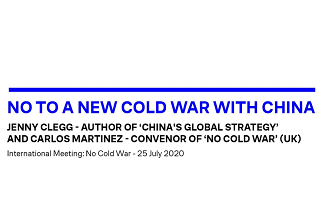
【No to the New Cold War】Event introduction by Jenny Clegg and Carlos Martinez
On July 25th, an international meeting in Opposition to the US-led New Cold War on China organized by scholars and activists from 48 countries voluntarily was broadcast live on Zoom, Facebook and YouTube simultaneously. The joint statement with 14-language version of "A New Cold War against China is against the interests of humanity" has attracted great attention from the international community. The event brought together 17 well-known scholars and opinion leaders from China, the United States, the United Kingdom, India, Russia, Canada, Venezuela, Brazil and other countries to participate in the speech. Jenny Clegg, author of 'China's Global Strategy: Toward a Multipolar World', is one of the speakers of the "No to the New Cold War" initiative. Carlos Martinez is the convenor of "No Cold War'.
2020-08-07 -
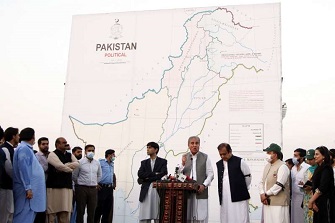
Pakistan’s new Kashmir map links it to China, fuelling India’s fears of war with both
Pakistan's move to unveil a new political map reasserting its claim to all of Indian-administered Kashmir - minus the parts claimed by China - is fuelling New Delhi's fears of a two-front conflict with its neighbours, despite a lack of evidence that such a move is in the works. But the release of the map is the latest in a series of conflicts born from cartography which have broken out in the Himalayas since May - from a deadly scuffle between Indian and Chinese soldiers in mid-June to a war of words that began earlier in the summer when Delhi opened a road through territory claimed by Nepal.
2020-08-07 -
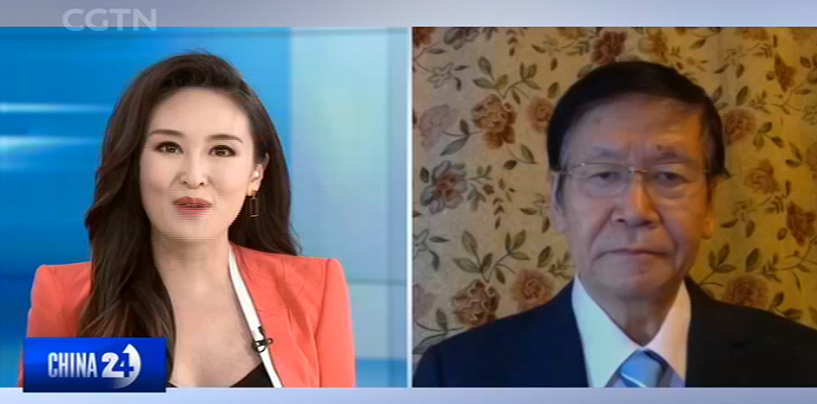
【CGTN】Liu Zhiqin was interviewed by Global Business on Tourism Recovery
China's rail network saw over 200 million trips in July, up 24% compared to June. There are over eight million trips on July 25th. CGTN's Global Business gave a comprehensive interview with Liu Zhiqin, a senior fellow at Chongyang Institute for Financial Studies, Renmin University of China(RDCY), on tourism recovery. Now cities offer subsidies and discounts to boost tourism.
2020-08-06 -

Wang Yiwei: China supports international sea laws, US the opposite
The International Tribunal for the Law of the Sea (ITLOS), an intergovernmental organization created by the mandate of the Third United Nations (UN) Conference on the Law of the Sea, is expected to hold an election in August or September. China has nominated a candidate for the position of judge in the ITLOS. But the US is attempting to stop China by saying that China has flouted international sea laws in the South China Sea, according to a report by CNBC released on Monday.
2020-08-06 -
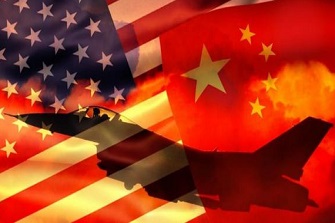
【No to the New Cold War】Medea Benjamin: US Cold War China Policy Will Isolate the US, Not China
Tensions between the United States and China are rising as the U.S. election nears, with tit-for-tat consulate closures, new U.S. sanctions and no less than three U.S. aircraft carrier strike groups prowling the seas around China. But it is the United States that has initiated each new escalation in U.S.-China relations. China’s responses have been careful and proportionate, with Chinese officials such as Foreign Minister Wang Yi publicly asking the U.S. to step back from its brinkmanship to find common ground for diplomacy.
2020-08-06 -

“Homebody economy” prompts snack sales spike in China
The Chinese snack industry is expected to maintain a compound growth rate of over 6 percent, with an estimated sales volume of 3 trillion yuan in 2020, which may exceed 4 trillion yuan in 2025, according to a recent industry report. The sector registered a compound growth rate of 6.7 percent from 2013 to 2019, the report said. Industry insiders said that the boom in snack consumption, which has become a distinctive feature of the homebody economy, was attributed to surging consumer demand underpinned by the Chinese economy.
2020-08-06 -
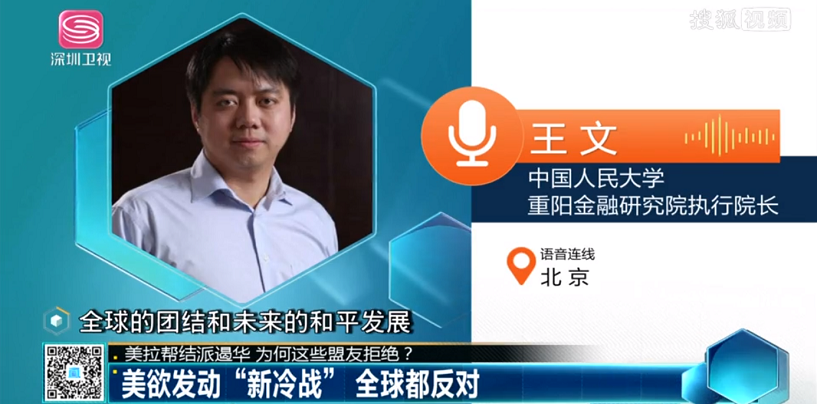
【Shenzhen TV】Wang Wen: U.S. Ganging Up to Contain China, Why These Allies Refuse
As the China-US game escalates, the US has ganged up to contain China, and ASEAN countries have not followed, so why do these allies refuse the US? In the evening of August 3, Shenzhen TV's "Hot Spot Debate" in depth analyzed this problem and connected to Wang Wen, the executive dean of Chongyang Institute for Financial Studies, Renmin University of China (RDCY). Dr. Wang described the international online meeting entitled “A New Cold War against China is against the interests of humanity” on July 25 and said that the current U.S. tactics against China are not new at all, reflecting the exhaustion of U.S. skills in the great power competition. And China should retain its basic strategic stability and be more confident in its strategy.
2020-08-06 -
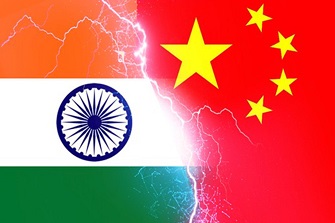
Liu Zongyi: What do India’s restrictions on Confucius Institutes show?
During the Galwan Valley clash, it was India that violated the China-India bilateral agreement on the Line of Actual Control. However, China does not want the accidental clash to affect the stability and development of bilateral relations. Therefore, after the clash, China has kept a relatively low profile on a series of issues involving China-India relations, and Chinese media has not reported much on the clash. This is mainly because China wants to save some face for India, and to maintain the overall stability of bilateral relations.
2020-08-05 -
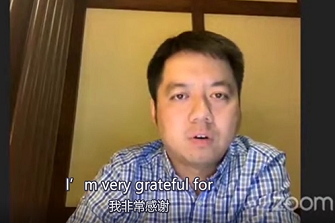
【Beijing Review】Wang Wen: China is not the U.S. enemy, the virus is
The next few months before the U.S. presidential election on November 3 will be a high-risk period for Sino-U.S. relations as Donald Trump will do anything to win his reelection. The possibility of the Trump administration resorting to military conflict against China can't be ruled out. Trump's China policy has no bottom line. He is likely to announce a diplomatic break-off with China because one of his election strategies is to constantly provoke China.
2020-08-05 -
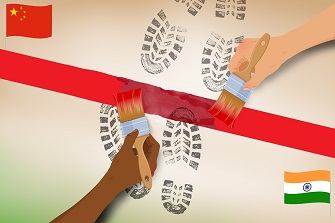
Long Xingchun & Zhang Sheng: Sinophobia and Indian nationalism a bad mix
In the wake of the border conflict between China and India in the Galwan Valley, both the Indian government and a group of Indian individuals have clearly demonstrated their vehement ultra-nationalist zeal and extreme Sinophobia. This type of Sinophobic zealotry is attempting to exacerbate a simple border conflict into economic decoupling. After some Indian nationalists advocated boycotting Chinese goods, surprisingly, the Indian government was soon infected by their irrationality to and abused the concept of "national security" to ban 106 Chinese apps. New Delhi moved even further and irresponsibly disallowed Chinese companies to participate in road construction projects in India.
2020-08-05 -
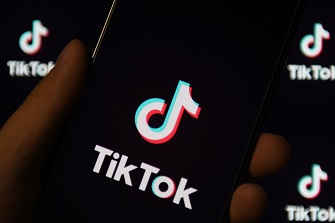
Liu Zhiqin: US is sabotaging its own national security
The US President Donald Trump recently announced his intention to ban the Chinese short-video platform TikTok in the US. He was about to give another "signature show" to the world, by signing an order to ban the app, and again reveling in condescending sentiment. The news has been making headlines across the world, but what's lurking behind his hatred of TikTok? The reasons are nothing new: they're all about his cliché concerns over national security. Trump accuses TikTok of posing a "national security" threat to the US, but without any proof.
2020-08-05 -
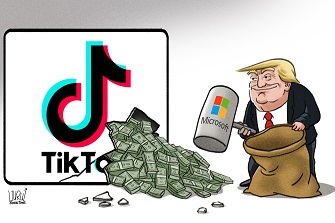
Trump’s request for cut from TikTok deal 'unprofessional,' threatens US business environment
Trump said on Monday that TikTok would be banned in the US unless it is bought by Microsoft or another company by September 15, and suggested the US Treasury should get a cut from the deal. Although it is unclear what amount Trump is referring to, his statement is a clear departure from market principles and a threat to the US business environment. According to US news outlets, Trump said on Monday that he is expecting "a very substantial portion" of the price of a potential deal as they are "making it possible for this deal to happen."
2020-08-05
























































































 京公网安备 11010802037854号
京公网安备 11010802037854号





